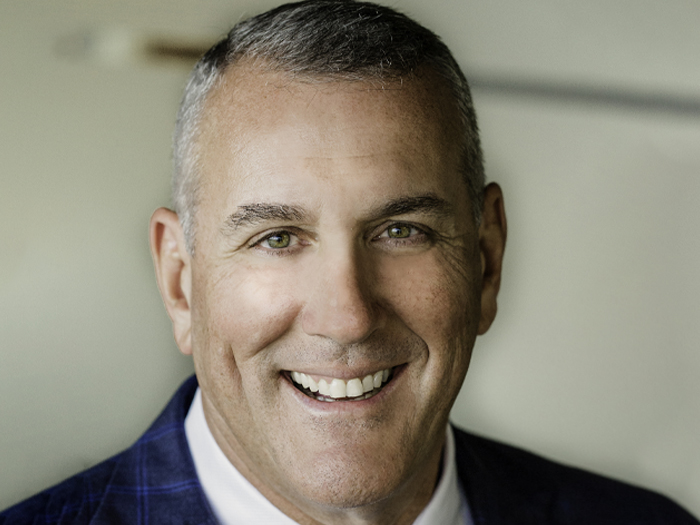Legal Roundup: TikTok Operations Continue in U.S., Blue Cross Insurers Could Settle for $2.7 Billion and More

TikTok Sues to Block App Store Ban, Strikes Deal to Continue U.S. Operations
The Case: Popular social media app TikTok has sued President Trump and his administration over an order banning TikTok from being downloaded in the United States.
TikTok has become a favorite of dancing teens, iPhone hack tutors and aspiring chefs who share short-form videos with the world.
The Trump administration saw the Chinese-owned TikTok as a threat to cyber security, because it could potentially share American user data with the Chinese government. The Wall Street Journal reports: “TikTok and [parent company] ByteDance in their complaint argue that the Trump administration acted beyond its capacity and violated free-speech protections with Friday’s decision to proceed with a ban.”
Scorecard: The Trump administration has relented due to a proposed deal that would bring TikTok data to American cloud servers.
NPR reports: “U.S. tech company Oracle is joining hands with Walmart to form a new entity called TikTok Global, which will be headquartered in the United States.”
The WSJ says: “Oracle also will provide cloud services and guarantee TikTok’s data is secure.”
Takeaway: A ban from the Apple App Store or Google Play shops would have been a devastating blow to TikTok, meaning it could no longer gain new American users. It currently has 100 million.
While the company continuously claims it would never share user data with the Chinese government, it agreed to form an American-based entity to quell cyber security concerns.
Could the Chinese government still gain access to American data? Yes, Chris Kelly, former chief privacy officer at Facebook told the WSJ. “The interactions with the Chinese government, and the ability of the Chinese government to put pressure on the ByteDance company, is still substantial,” he told the newspaper.
“It won’t be strange to have interaction between the two companies on a number of different issues, including algorithmic operations, so that could stretch into personal data pretty easily.”
Blue Cross Insurers Nearing $2.7 Billion to Settle Anti-Competition Claims
The Case: Customers of the nation’s Blue Cross medical insurers sued over an alleged effort to thwart competition among the individual companies.
The Wall Street Journal reports: “The antitrust claims were first brought in 2012 as a proposed class action on behalf of employers and individual policyholders with Blue coverage. The suit attacked a setup that has endured for decades, under which companies typically hold exclusive rights to the Blue Cross and Blue Shield names within a certain territory. The suit alleged that the insurers illegally conspired to divvy up markets and avoid competing against one another, driving up customers’ prices.”
Scorecard: Both sides reached a tentative settlement of $2.7 billion, according to the WSJ. The settlement still needs to be approved by the Blue Cross Blue Shield Association and a district court judge.
Takeaway: More competition should lead to better health care costs, especially since one in three Americans is covered by a Blue Cross plan.
NYPD Cop Says He Was Forced Out Over Medical Marijuana
The Case: Robert Cascalenda was prescribed medical marijuana to deal with a number of health issues — but claimed that it led to the NYPD forcing him out of his job.
The New York Post reports that Cascalenda has a birth defect that “makes him prone to getting pancreatitis when he takes prescription drugs,” but he “ended up on painkillers Percocet, OxyContin, Hydrocodone, Tramadol and Morphine over the years to treat injuries suffered on and off the job” as well as Lyme Disease and fibromyalgia.
After being prescribed marijuana instead, Cascalenda hoped to continue work as a police officer, but tested positive in a random drug screening and was reprimanded. He since left the department and sued over not getting a reasonable accommodation for his health problems.
The NYPD told the Post, “We will review the lawsuit if and when we are served.”
Scorecard: The case has not yet come to a resolution.
Takeaway: Employers must make reasonable accommodations for disabilities and health issues — but it’s still unclear if the NYPD acted inappropriately. The case is also a reminder that even in states where medical marijuana is legal, employers may still enforce zero-tolerance policies.
Stage Diving Injury Leads to $2 Million Settlement
The Case: While attending a heavy metal concert in Asbury Park, N.J., Jason Kooken suffered spinal injuries when a stage diver jumped on top of him.
NJ.com reports: “The lawsuit alleged that security working for the event organizer, Asbury Audio, Inc., knew the stage diving was happening and did nothing to stop it.”
Kooken sued the venue in superior court. NJ.com said: “Kooken underwent spinal surgery at Jersey Shore University Medical Center, and rehabilitation near his home in New Hampshire, his lawyers said. He has since regained regular function, and is able to ski and surf again.”
Scorecard: Kooken won $2 million in damages.
Takeaway: Every business should have safety plans, including concert venues that allow mosh pits and aggressive dancing. More importantly, vendors providing security services must be held accountable for enforcing those plans. &










